It’s no secret that the construction industry has a long way to go in terms of positive mental health culture—the sector has the highest suicide rate in North America. Combating the stigma against mental health is made easier with self-reflection and mental health resources. Here, we’ll go through some of the best mental health books, including The Myth of Normal, Unfu*k Yourself, and Can’t Hurt Me, for workers in the construction space and give you a breakdown of why we love them and what you can expect.
1. The Myth of Normal by Gabor Maté
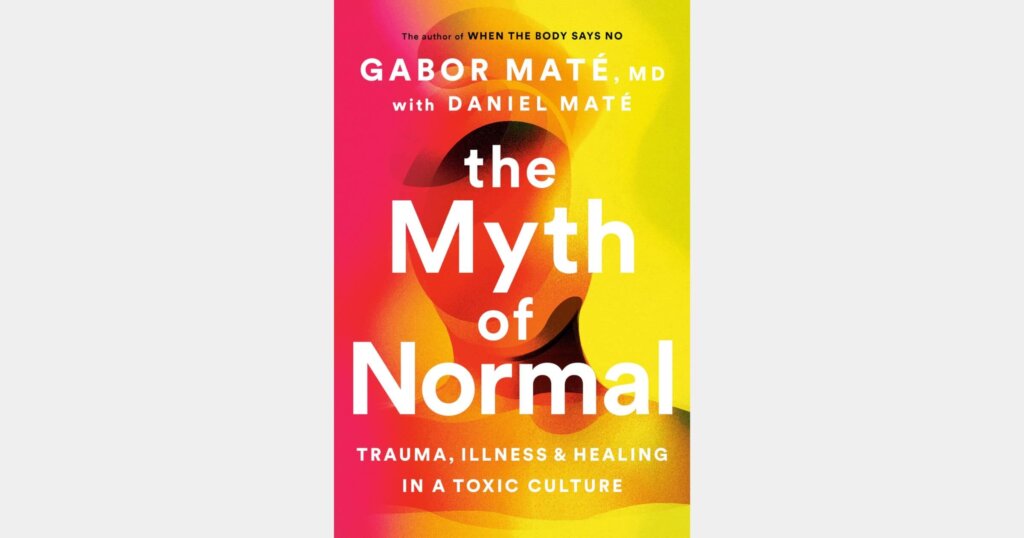
Get it here: Bookshop.org | Amazon
In The Myth of Normal, Gabor Maté explores the notion of “normal” and why stress, trauma, and modern-day life set us up never to meet that expectation. With four decades of experience backing his findings in this book, readers learn to untangle common myths about causes of sickness and instead find healing and health.
This is an excellent book for construction workers, as the “tough guy” culture is still prevalent both on-site and off-site. Construction workers need not hold themselves to such toxic and unrealistic standards, because, as Maté demonstrates, “normal” is a myth and the mental and physical consequences of trying to achieve it are drastic.
Key takeaways:
- Almost 70% of Americans are on a prescription drug, and more than half are on two.
- Despite Western pride in healthcare, ill health is on the rise.
- “Normal” is a false understanding that modern-day life can’t set you up for.
- The declining soundness of society and individual ailments are connected.
2. The Daily Stoic by Ryan Holiday
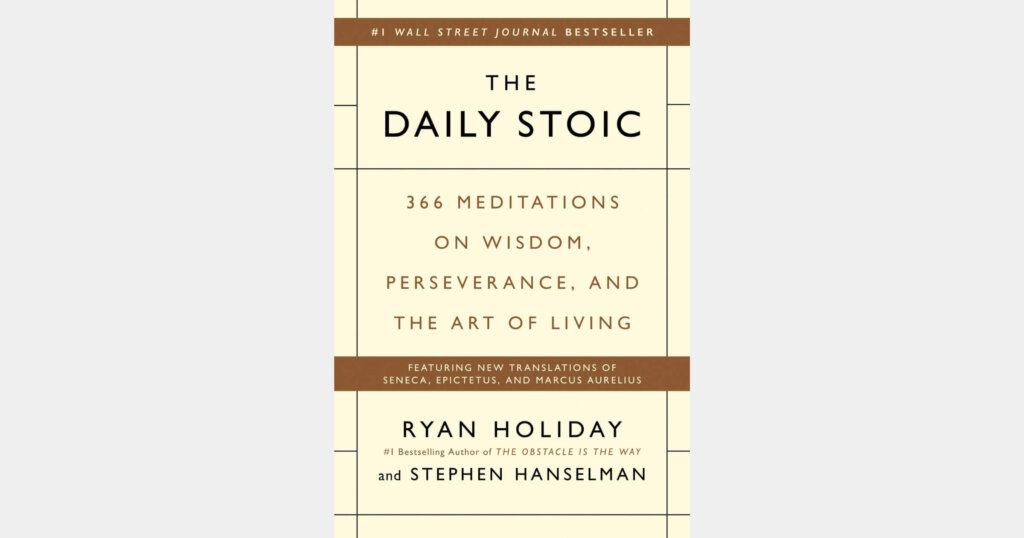
Get it here: Bookshop.org | Amazon
History’s wisest leaders have long been associated with Stoic Philosophy. These teachings, from Seneca, Zeno, Aurelius, and more, blend wisdom with practicality as people search for the answers to the great meaning of life. The Daily Stoic by Ryan Holiday condenses the most integral teachings and re-packages them in a more accessible way—no need to ponder and parse complex philosophy. Readers can gain insights and learnings without being left in the dark.
This book is aimed at high-octane doers. It’s for people who work hard but lack the downtime to reflect on life’s bigger picture. This is perfect for construction workers to dig into philosophy, reduce short-term stressors, and go between work days with a more positive outlook.
Key takeaways:
- 12 monthly themes outline perception, action, and the power of will.
- Aimed at action-oriented doers.
- Page-per-day format makes Aurelius, Epictetus, and Seneca digestible and accessible.
3. Unfu*k Yourself by Gary John Bishop
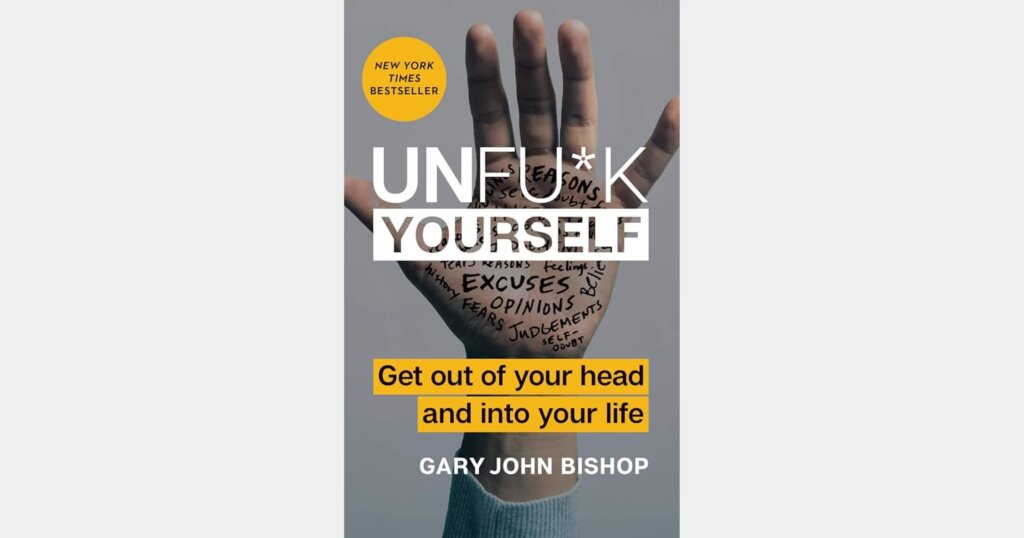
Get it here: Bookshop.org | Amazon
For construction workers looking for self-help in more of a familiar, tough-guy voice, Unfu*k Yourself by Gary John Bishop hits the mark. This no-nonsense empowerment guide offers a tough-love approach to the self-imposed problems you carry with you every day. When “trusting the process” doesn’t work, it’s time to try tactical steps.
For those seeking motivation to build relationships, advance their careers, or navigate uncertainty, Unfu*k Yourself offers the perfect solution. It’s short, empowering guidance that helps you emotionally get the job done.
Key takeaways:
- Leads you through seven assertions: I am willing, I am wired to win, I got this, I embrace uncertainty, I am not my thoughts, I am relentless, and I expect nothing but accept everything.
- You are the barrier to getting ahead in life.
- Build better habits, boost resilience, and beat self-doubt.
4. Burnout by Emily and Amelia Nagoski
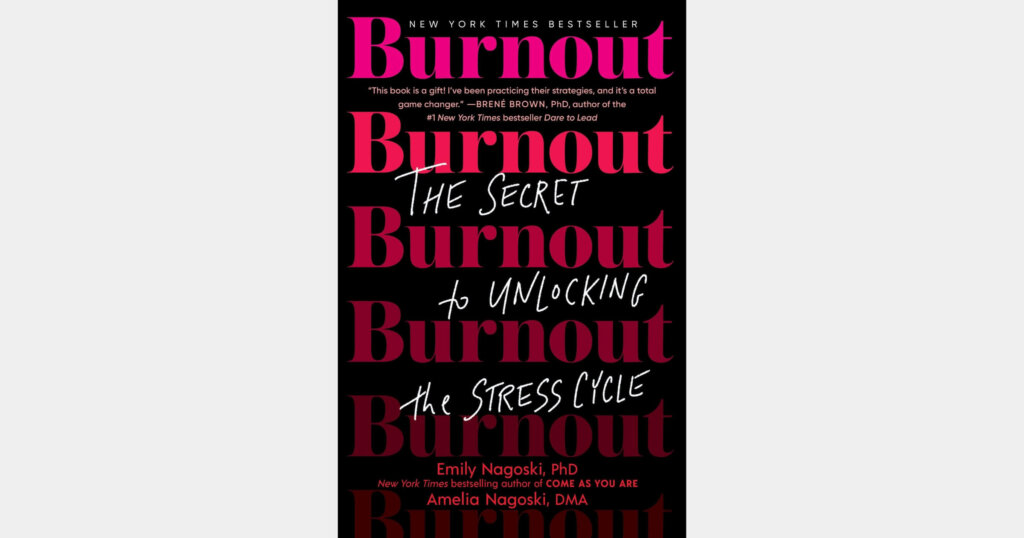
Get it here: Bookshop.org | Amazon
If you work in construction, you’re probably no stranger to burnout—that’s exactly what the straightforwardly titled Burnout by sisters Emily and Amelia Nagoski addresses. This book explains how and why women and men experience burnout differently, and offers an easy science-based plan to manage emotions and lessen stress.
This book is helpful for construction workers of all levels and genders, but is mainly targeted to women. It offers worksheets, exercises, and teachings that women will find transformative and empowering. Instead of preaching “perfect mental health,” the Nagoski sisters instead steer women to practical wellness within any woman’s reach.
Key takeaways:
- Managing “the monitor” in your brain, regulating frustration and emotion.
- Why the Bikini Industrial Complex makes it almost impossible to love your body.
- How to complete the biological stress cycle and return to relaxation.
- Why human connection, rest, and befriending your inner critic are key for battling burnout.
5. Letting Go by David R. Hawkins
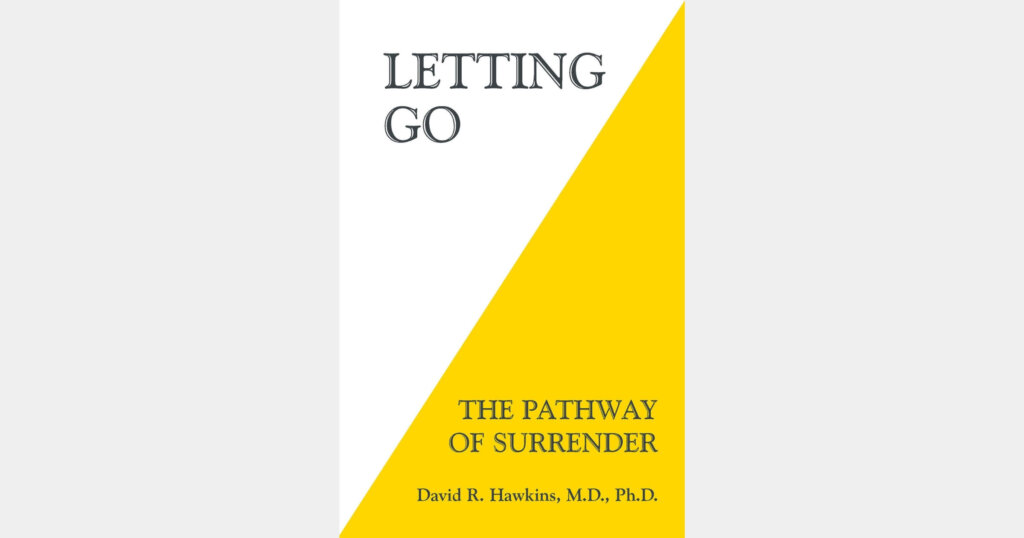
Get it here: Bookshop.org | Amazon
Letting Go by David R Hawkins is another self-development book that helps readers break the barriers of negative beliefs and feelings. It serves as a mechanism for letting go of blockers to joy, success, health, and enlightenment. David Hawkins, a clinical psychiatrist, guides readers through combating everything from financial success to addiction.
Many outside influences could pile on to a construction worker’s already gruelling day-to-day. By practicing resilient mental health through Letting Go, you’ll find it easier to show up as your best self at work, making your long career more fulfilling.
Key takeaways:
- Releasing past traumas, negative beliefs, and self-imposed limitations.
- How to find a new sense of joy, freedom, and authenticity.
- How to grow personal relationships and beat addiction.
- Gain success in your career.
6. Feeling Good by Dr. David D. Burns
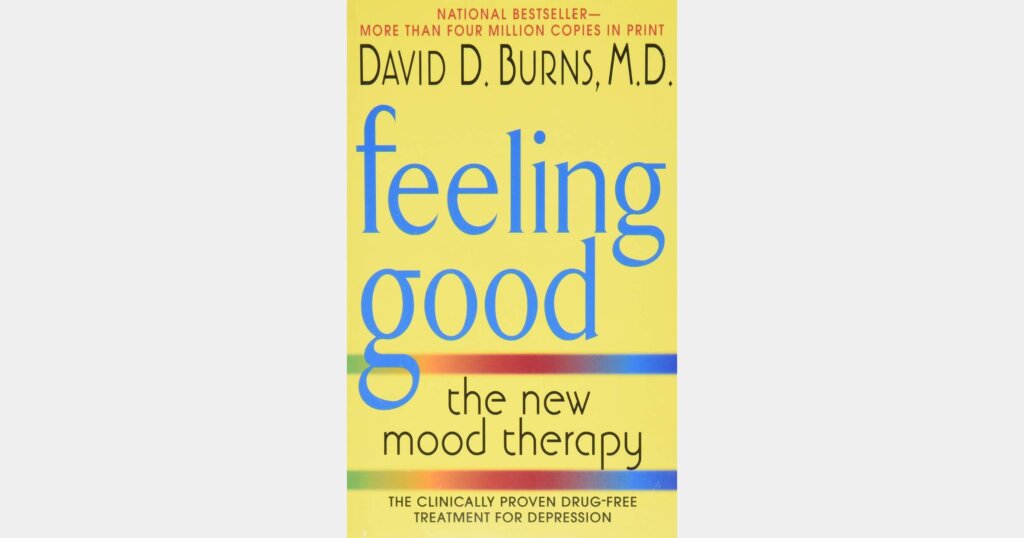
Get it here: Bookshop.org | Amazon
David Burns’ Feeling Good is an older book, but truly practical mental health teachings and resources stand the test of time. In this book, Burns (a clinical psychiatrist) offers science-backed techniques to help you routinely lift your spirits and carry a more positive outlook on life.
This most recent edition is invaluable for construction workers, as it offers an extended consumer guide to antidepressants and navigating depressive thoughts. Depression is a common mental health issue in the construction industry, and practical resources for workers and leaders are essential to treating it.
Key takeaways:
- What causes and how to regulate mood swings.
- How to manage guilt and negative feelings.
- How to overcome addiction and replace it with approval and love.
- How to build and keep self-esteem.
7. The Anxiety Toolkit by Alice Boyes
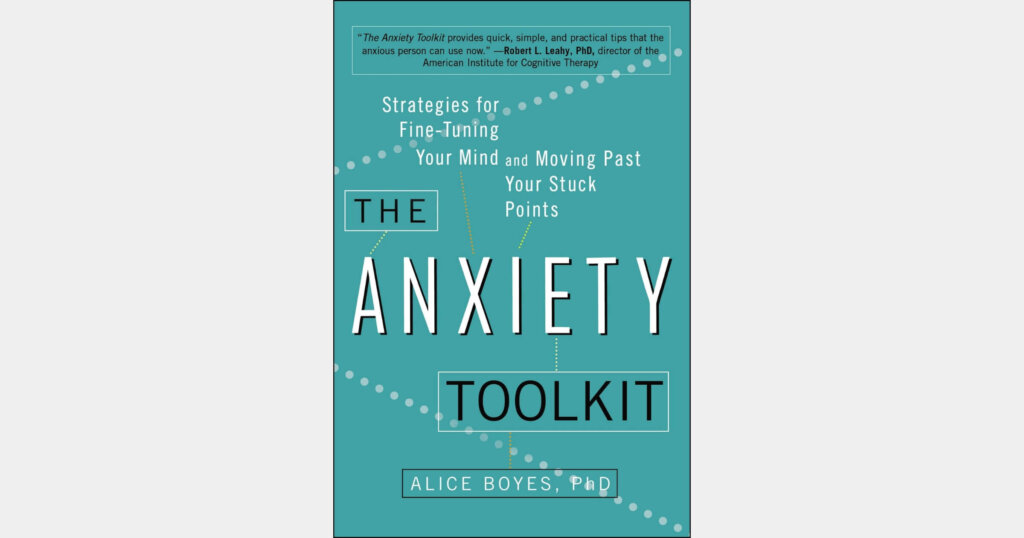
Get it here: Bookshop.org | Amazon
Does anxiety plague you on the job? The Anxiety Toolkit by Alice Boyes is the book for you. When people suffer from anxiety or carry anxious feelings, they overthink, make negative predictions, and always focus on the worst-case scenario. Boyes teaches that this negative, self-critical mindset blocks you from relaxation and a mostly stress-free life.
This is a great toolkit for construction workers because Boyes preaches that a “zero-anxiety” life isn’t realistic. Aiming for an impossibly perfect mental health is defeating, and it’s challenging to strive for when you work in a high-pressure setting like construction. This is a no-nonsense guide that gives practical, achievable anxiety advice.
Key takeaways:
- How to manage anxiety symptoms like hesitation and rumination.
- Helps people with anxious tendencies and people with diagnosed anxiety disorders.
- Reducing anxiety to zero is impossible, and there are ways it’s helpful.
8. Lost Connections by Johann Hari
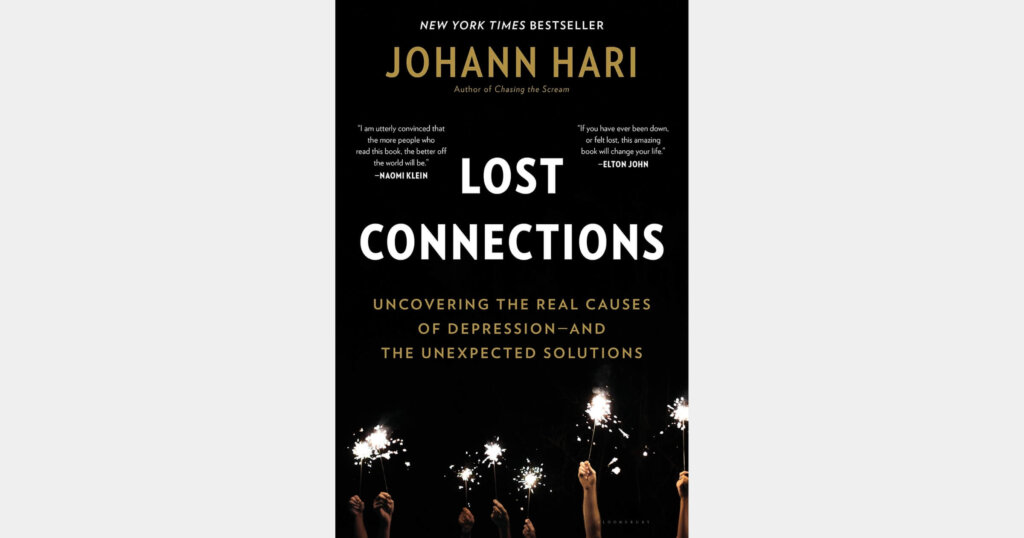
Get it here: Bookshop.org | Amazon
In Lost Connections, Johann Hari debunks the common belief that depression and anxiety are an uncombatable “chemical imbalance” in the brain. Instead of reaffirming that poor mental health is an impossible barrier, Hari conducts interviews with leading experts in the field that offer new insights and solutions for improving your mindset and your mental health.
For the construction workers who have a hard time validating their mental health struggles, this is a great place to start. Instead of pushing the “doomed” narrative, Lost Connections deep dives into where anxiety and depression stem from, scientifically, and what effective management really looks like.
Key takeaways:
- Your depression isn’t a chemical imbalance in the brain, but rather, is mainly associated with the way we live.
- Interviews with leading experts in the mental health space for balanced perspectives.
- The science behind the nine causes of depression and anxiety.
9. The Body Keeps the Score by Bessel van der Kolk
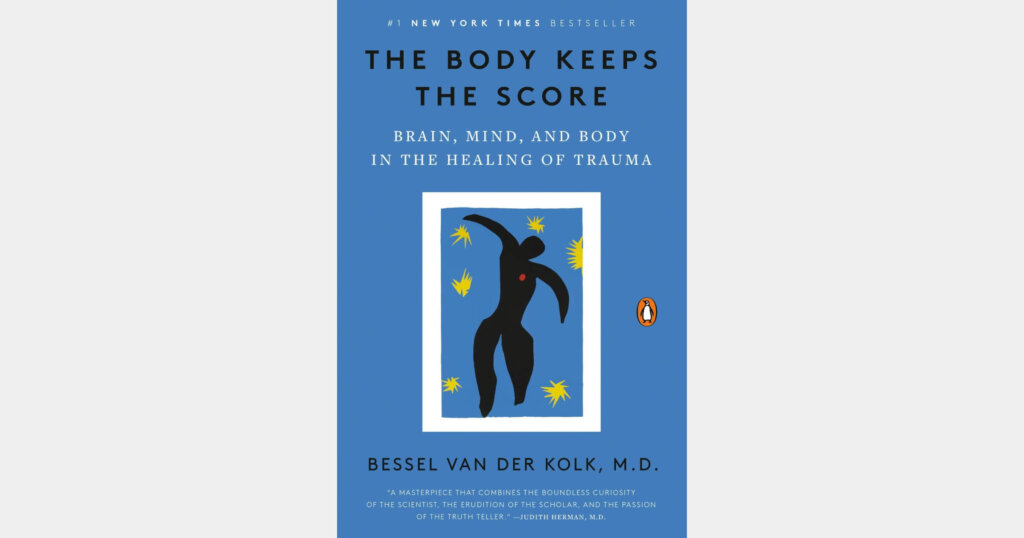
Get it here: Bookshop.org | Amazon
When we think about “trauma,” we often think of the select few who go through unthinkable hard times or tragedy. However, in The Body Keeps the Score, Bessel van der Kolk emphasizes that trauma is inevitable, but not impossible to work through. He uses recent scientific advances to demonstrate how trauma not only impacts your mental state but also your physical body. He also explores accessible, effective treatments such as yoga, sports, meditation, drama, and more.
For the doers in construction who want to learn about the mental and physical connection of depression and anxiety, but also make physical moves to treat them, this book is it. Construction workers need to be in shape to make their career a long one, and this book is a great way to get started.
Key takeaways:
- Trauma is a fact of life, not reserved for a small group of individuals.
- How trauma reshapes the brain and body.
- There are paths to recovery by activating the brain’s natural neuroplasticity.
10. Can’t Hurt Me by David Goggins
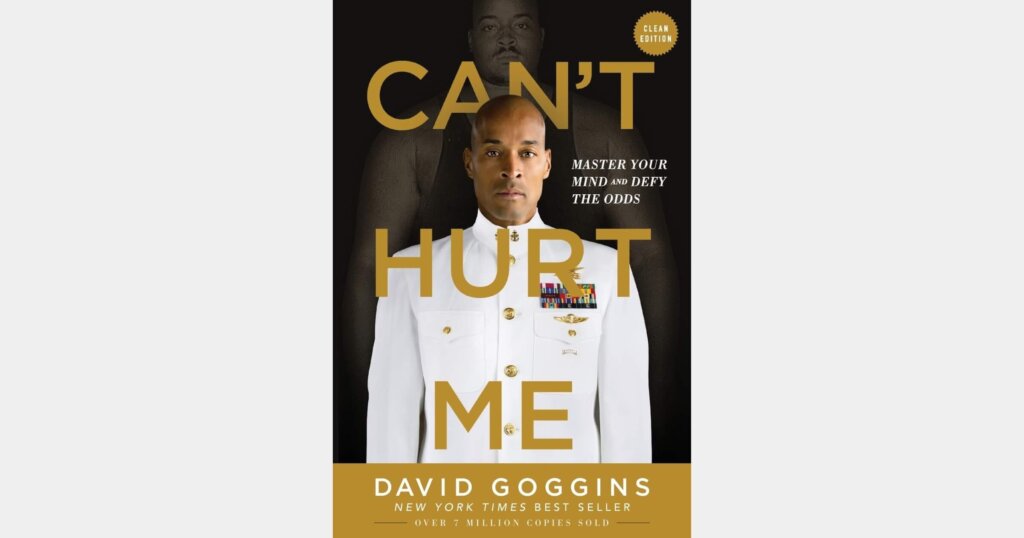
Get it here: Bookshop.org | Amazon
If you’re a construction worker or into any form of endurance sport, you may have already heard of Can’t Hurt Me by David Goggins. This book takes a different twist on self-help, and instead of providing facts and worksheets, it takes readers through chronological details of Goggins’ experience overcoming adversity. By retelling stories of being depressed, abused, and overweight, Goggins teaches hard work, self-discipline, and mental toughness.
The tough-guy culture in construction has already set workers up to appreciate this book. They already possess discipline and perseverance, and Can’t Hurt Me helps them channel these qualities into actionable steps to become more mentally resilient and healthy.
Key takeaways:
- Why we tap into only 40% of our capabilities.
- How to channel mental toughness, hard work, and discipline.
- How you can push past fear and reach your full potential.
11. The Let Them Theory by Mel Robbins
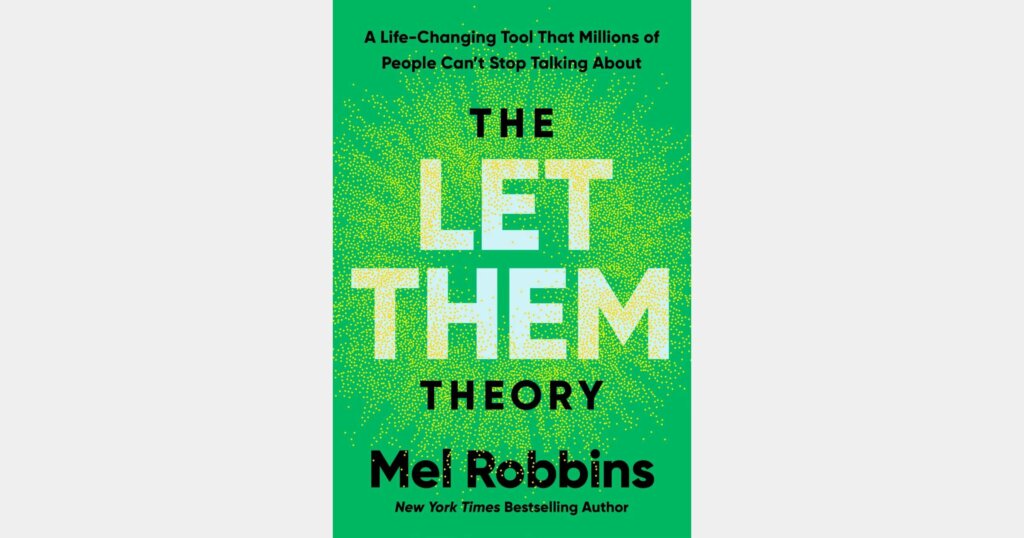
Get it here: Bookshop.org | Amazon
Perhaps the most straightforward concept on our list, Mel Robbins’ Let Them Theory, makes releasing mental blockers easier than ever. Robbins is one of the most respected experts on confidence and mindset, and she teaches you how to get out of a mental rut and instead focus energy on your goals, your life, and what makes you truly happy.
The depression and anxiety that arise from working in construction can be debilitating. But when delivered in Robbins’ highly-accessibly written guide, persevering and breaking mental barriers is doable sooner than workers think. You deserve success and happiness in and outside your career, and the “let them” concept is a simple gateway to make it happen.
Key takeaways:
- How to stop wasting time worrying about things you can’t control.
- Comparing yourself to others holds you back and wears on your mental health.
- Building strong friendships and relationships is done by letting go a little.
- Taking creative risks and advancing your career is made easier when you let go of people’s expectations and control over you.
Final thoughts
Books, of course, might not lift your mental health forever. Don’t be afraid to also seek professional help if you’re experiencing depression or anxiety.
That being said, they can be a great starting point to unlock deeper thinking about the mental challenges you’re experiencing at or due to work in construction. Give Burnout, Lost Connections, or The Daily Stoic a try. You’re not alone in your mental struggles, and you deserve to feel better and clock in to a more positive culture.
Loved this roundup of the best books for construction workers? Don’t forget to subscribe to the newsletter and follow us on LinkedIn to keep up with resources and news for workers in AEC.


